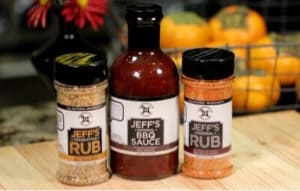This question was also asked by DaveOmak on Mr.Ts salt crustes aged beef thread.
Can salt (kosher, since is more expensive) be reused after being in contact with raw meat?
Especially after hitting it with say, 350F for 30min?
All I know about food safety makes me think the answer is yes. What do you fellows think?
Last night I buried some duck breasts in salt - needed 6lbs of it. Is not exactly inexpensive, so I would like to reuse if it is safe.
Can salt (kosher, since is more expensive) be reused after being in contact with raw meat?
Especially after hitting it with say, 350F for 30min?
All I know about food safety makes me think the answer is yes. What do you fellows think?
Last night I buried some duck breasts in salt - needed 6lbs of it. Is not exactly inexpensive, so I would like to reuse if it is safe.
Last edited:





